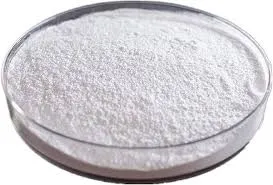
Nov . 18, 2024 14:13 Back to list
hydroxy ethyl cellulose uses
The Versatile Uses of Hydroxyethyl Cellulose in Various Industries
Hydroxyethyl cellulose (HEC) is a non-ionic, water-soluble polymer derived from cellulose, a natural polymer sourced from plant cell walls. Recognized for its unique properties, HEC has become increasingly important in a variety of applications across multiple industries. Its versatility can be attributed to its ability to form stable gels, enhance viscosity, and maintain moisture, making it valuable in formulations ranging from construction materials to personal care products.
1. Construction Industry
One of the significant uses of hydroxyethyl cellulose is in the construction industry, particularly in the formulation of mortars, plasters, and adhesives. HEC acts as a thickening agent that enhances the workability of these materials, allowing for easier application and better adhesion to surfaces. Additionally, it provides excellent water retention, which is crucial in preventing premature drying of cementitious mixtures. This property helps to improve the overall strength and durability of the finished products. By incorporating HEC into construction materials, manufacturers can ensure a longer open time for working with these materials, reducing waste and improving overall efficiency.
2. Personal Care and Cosmetics
HEC is also widely used in the personal care and cosmetics industry. Its ability to form gels and increase viscosity makes it an excellent thickening agent in formulations such as shampoos, conditioners, lotions, and creams. In cosmetics, HEC improves the texture of products, allowing for a smoother application. Furthermore, its film-forming properties enable products to provide a protective layer on the skin or hair while retaining moisture. This characteristic is particularly beneficial in moisturizing formulations, where hydration is key to skin health. With a growing demand for natural ingredients, the use of HEC as a plant-derived component in beauty products resonates with consumers seeking cleaner, sustainable options.
3. Food Industry
hydroxy ethyl cellulose uses

In the food industry, hydroxyethyl cellulose serves as a food additive. It functions primarily as a thickener, stabilizer, and emulsifier in various food products such as sauces, dressings, and dairy products. HEC helps to maintain the desired texture and consistency while preventing the separation of ingredients. Its ability to retain moisture also enhances the shelf life of food products, making it a valuable addition to processed foods. As consumer preferences shift toward convenient and ready-to-eat options, the demand for effective thickening agents like HEC continues to grow.
4. Pharmaceutical Applications
Hydroxyethyl cellulose is also utilized in the pharmaceutical industry. It is commonly found in topical formulations, including gels and ointments, where it acts as a controlled-release agent. The ability of HEC to form hydrogels allows for sustained release of active ingredients, improving therapeutic efficacy. Additionally, due to its biocompatibility, HEC is often used in ophthalmic and injectable formulations. Its non-toxic nature makes it suitable for various pharmaceutical applications, ensuring safety and effectiveness for patients.
5. Agriculture
In agricultural applications, HEC is used as a soil conditioner and a water-retention agent. It helps improve soil structure and promotes better water retention, which is vital for plant growth. Hydroxyethyl cellulose can also be found in seed coatings, enhancing seed performance by providing a controlled release of nutrients and improving germination rates.
Conclusion
Hydroxyethyl cellulose is a multifunctional polymer that plays a crucial role in multiple industries, including construction, personal care, food, pharmaceuticals, and agriculture. Its unique properties make it an essential ingredient in various formulations, addressing the needs of modern consumers and manufacturers alike. As research continues and new applications are explored, the relevance and utility of hydroxyethyl cellulose are likely to expand, confirming its position as a versatile and valuable polymer in today’s market.
-
Versatile Hpmc Uses in Different Industries
NewsJun.19,2025
-
Redispersible Powder's Role in Enhancing Durability of Construction Products
NewsJun.19,2025
-
Hydroxyethyl Cellulose Applications Driving Green Industrial Processes
NewsJun.19,2025
-
Exploring Different Redispersible Polymer Powder
NewsJun.19,2025
-
Choosing the Right Mortar Bonding Agent
NewsJun.19,2025
-
Applications and Significance of China Hpmc in Modern Industries
NewsJun.19,2025







